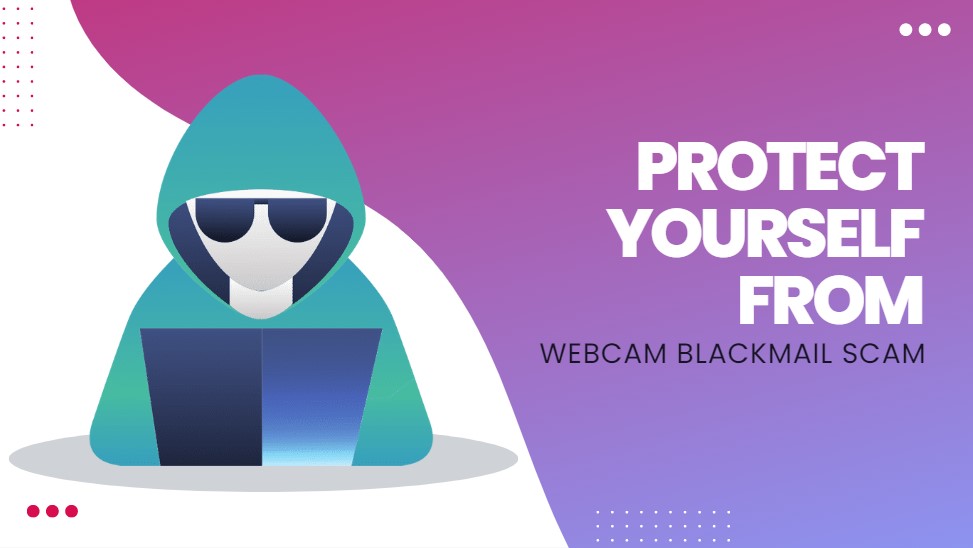
webcam blackmail
Webcam Blackmail
With the increasing reliance on technology and the growing popularity of video conferencing and social media platforms, the risk of falling victim to cybercrimes such as webcam blackmail scams has become a concerning reality. Webcam blackmail, also known as “sextortion,” refers to the act of extorting individuals by threatening to release compromising images or videos captured through their webcams. This article delves into the intricacies of webcam blackmail scams, explores their methods, and provides essential tips to protect yourself from falling prey to such malicious activities.
Understanding Webcam Blackmail Scams:
Webcam blackmail scams typically start with the perpetrator gaining access to a victim’s computer or smartphone, either through malware, phishing emails, or exploiting security vulnerabilities. Once the attacker gains control, they activate the victim’s webcam without their knowledge or consent, secretly recording their activities. This could involve intimate moments, personal conversations, or any sensitive material that can be used to exploit the victim.
The Scammer’s Tactics:
After capturing compromising footage, the scammer then proceeds to blackmail the victim, often by sending an email or message that includes a snippet of the recorded material. The threat is clear: comply with the scammer’s demands, typically involving the payment of a sum of money, or risk having the explicit content shared with friends, and family, or posted online. These scams are designed to exploit the victim’s fear, embarrassment, and desire to prevent the release of such material.

Webcam Blackmail Scams:
Protecting Yourself from Webcam Blackmail Scams:
- Strengthen Your Cybersecurity: Regularly update your operating system, antivirus software, and other applications to minimize security vulnerabilities. Install a reliable firewall and use strong, unique passwords for all your online accounts. Additionally, be cautious when downloading files or clicking on suspicious links, as they may contain malware.
- Cover Your Webcam: Consider using a physical cover or webcam sticker to prevent unauthorized access to your camera. Even if your webcam is compromised, covering it ensures that no images or videos can be recorded without your knowledge.
- Be Vigilant of Phishing Attempts: Be cautious when responding to emails, messages, or social media requests that seem suspicious or ask for personal information. Cybercriminals often use phishing techniques to trick users into revealing sensitive data or downloading malware.
- Practice Safe Online Behavior: Avoid engaging in intimate or compromising activities on video chat platforms unless you are confident about the privacy and security measures in place. Additionally, be mindful of what you share online and with whom, as the information you put out can be used against you.
- Enable Two-Factor Authentication (2FA): Implementing 2FA adds an extra layer of security to your online accounts. By requiring a second form of verification, such as a text message code or fingerprint scan, it becomes much more difficult for scammers to gain unauthorized access.
- Maintain Strong Privacy Settings: Regularly review the privacy settings on your social media accounts, ensuring that only trusted individuals have access to your personal information and posts. Be cautious about accepting friend requests or connections from unknown individuals.
- Report and Block Scammers: If you receive suspicious messages or emails attempting to blackmail you, report the incident to your local law enforcement agency and the platform through which you received the message. Block the scammer and avoid engaging further.
Conclusion:
Webcam blackmail scams are a distressing form of cybercrime that can have severe emotional, financial, and reputational consequences for victims. By staying informed about the tactics used by scammers and implementing proactive cybersecurity measures, you can significantly reduce the risk of falling victim to such scams. Remain vigilant, protect your digital presence, and remember that seeking help from law enforcement and support organizations is crucial if you encounter webcam blackmail or any other form of cyber.
Act smart and don’t let them take control! Learn more about how to protect yourself from “Webcam Blackmail” and “Skype Blackmail” today.
🔒 Contact us to safeguard your digital life. Your peace of mind is just one click away. Don’t wait till it’s too late, act now! 🔒



